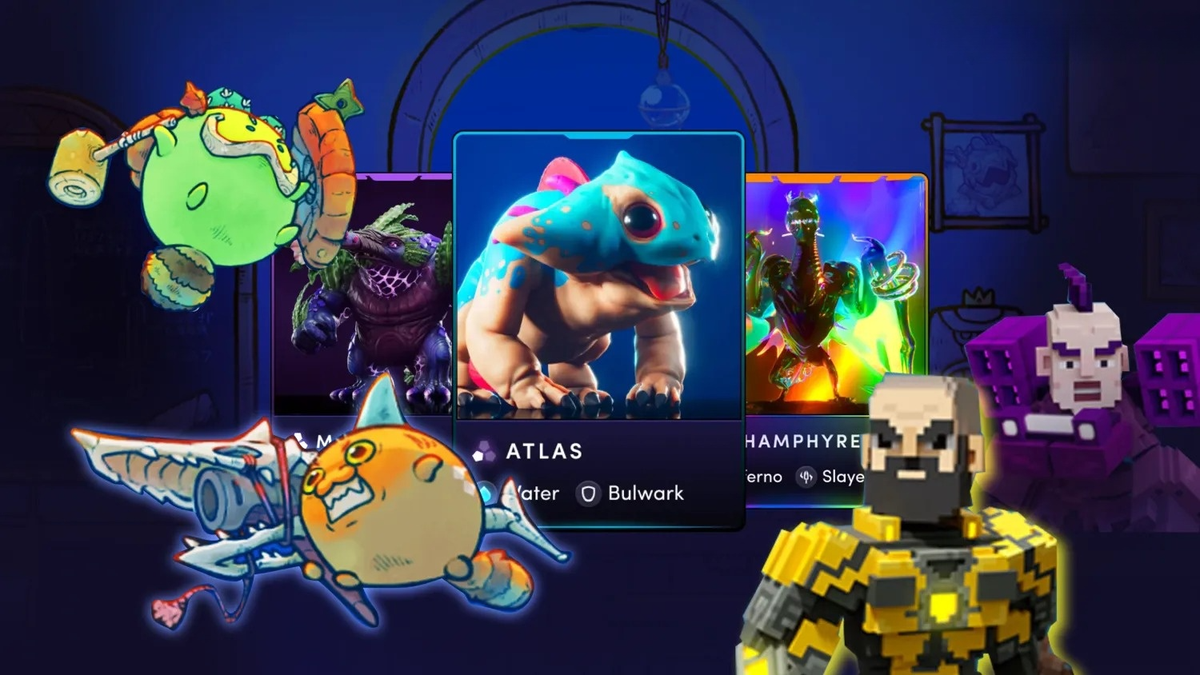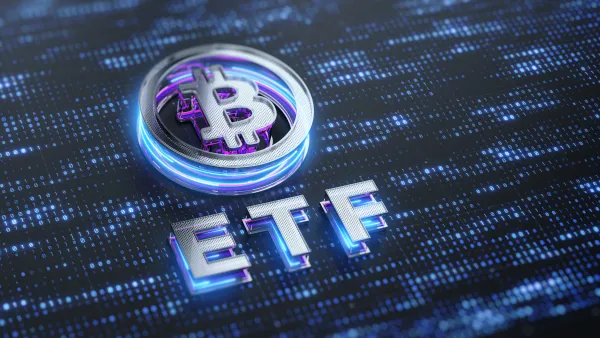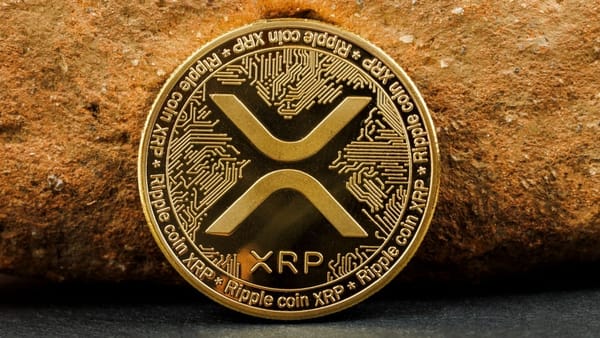Common NFT Gaming Terms Every Gamer Should Know

Built and developed on the blockchain network, integrating NFTs and decentralized finance (DeFi) features, NFT games come with a plethora of terms compared to traditional gaming.
Many gamers find themselves overwhelmed by a "forest of terms" when diving into NFT games to both play and earn money.
Understanding this, Gamefinity has compiled the most common NFT gaming terms every gamer should know.
Most Common NFT Gaming Terms
GameFi
GameFi refers to blockchain games that allow players to participate in gaming to earn money. Combining gaming elements with financial aspects, the GameFi model is also known as Play-to-earn.
Players can earn tokens and NFT rewards by completing tasks, battling other players, and achieving different levels in the game. These tokens and NFTs can then be exchanged for cash.
Read more: What is GameFi? Top 5 Play-to-Earn Games for Beginners
NFT
NFT stands for Non-Fungible Token, a data unit on the digital blockchain ledger.
NFTs represent unique items in the game, such as warriors, items, weapons, or body parts associated with skills.
There are two ways to own NFTs: purchasing them on a marketplace or earning them through tasks that reward NFTs.
Cryptocurrency
Cryptocurrency is digital currency. However, digital currency is not managed by any organization but operated by computers connected worldwide.
Coin and Token
Coins are built and developed on separate blockchain platforms and operate independently.
In contrast to coins, tokens are developed on an existing blockchain platform.
In most NFT games, there are two types of tokens:
- Governance Tokens: the primary tokens of the game, with a limited supply.
- Reward Tokens: used as an in-game currency to reward players participating in activities, often with an unlimited supply.
Altcoin
Simply put, there are two main types of coins in the market: Bitcoin and Altcoin. Any coin that is not Bitcoin is referred to as Altcoin, such as ETH, SOL, AXS...
Wallet
When playing any NFT game, you need a blockchain wallet to store the coins/tokens within the game.
The most commonly used wallet in NFT games is the Metamask wallet.
Read more: How to Use Metamask to Store NFTs & Tokens
Whitelist
Whitelist is a list of players allowed to participate in events such as IDO, Free Mint NFT, Pre-sale, NFT box sale, or early game experience.
To be listed, players usually have to complete a public Airdrop task or contribute to the project.
IDO
IDO (Initial DEX Offering) is a fundraising method through token sales on decentralized exchanges.
INO
INO (Initial NFT Offering) means issuing NFTs for the first time.
Similar to ICO, IEO, IDO, IGO, INO refers to the initial issuance of NFTs to the public and is a community fundraising method through NFT sales.
NFT Marketplace
An NFT marketplace is a market for buying and selling NFTs. All types of assets require a market for transactions, including NFTs.
Most NFT marketplaces require users to have a blockchain wallet and use cryptocurrencies for payments, and recently some major exchanges allow payments via VISA/Mastercard.
Read more: Top 13 Popular NFT Marketplaces Today
Guild Game
A Guild Game is a community that acts as a link between players and game producers in the GameFi industry.
Guild games have a large capital base to provide digital assets and jobs through scholarships to encourage participation and contribute to the in-game economy.
Read more: Top 5 Strongest Guild Games in the GameFi Market
Airdrop
You will receive rewards such as stablecoins, tokens, NFTs, whitelist slots, or non-NFT items in the game when participating in Airdrop events.
The tasks that players need to perform in Airdrop events are usually diverse and serve as a marketing step to introduce the game to players.
AMA
AMA (Ask Me Anything) is an online event where game publishers answer questions posed by the community.
Typically, AMAs are held on popular social media platforms such as Facebook, Youtube, Telegram, Discord,...
Staking
Staking involves holding and locking a certain amount of tokens to receive a token reward.

Instead of leaving them on exchanges without earning additional tokens, you can stake them and earn more coins during the staking period. Of course, this is suitable for gamers who want to hold tokens for the long term.
Example: Staking ILV tokens in the Illuvium game.
APR and APY
APR and APY are terms referring to annual profits, commonly used in DeFi, especially in farming, staking, lending,...
APR (Annual Percentage Rate) refers to the actual annual interest percentage you receive when investing, excluding compound interest.
APY (Annual Percentage Yield) is the annual profit percentage calculated by compounding. This is the actual profit percentage you earn from an investment, including compound interest.
Whitepaper
A whitepaper is a detailed draft describing a blockchain project or NFT game, helping players understand and comprehend the project they are about to join.
Tokenomics
Tokenomics is a term describing the economics of a token. It describes factors influencing the use and value of tokens, including but not limited to token creation and distribution, supply and demand, incentive mechanisms, and token burn plans.
For cryptocurrency projects, well-designed tokenomics is a crucial factor for success. Evaluating a project's tokenomics before deciding to participate is essential for investors and stakeholders.
Stablecoin
If translated literally, stablecoin is a stable coin.
This is a type of cryptocurrency developed on the blockchain and with a mechanism to ensure its value remains stable.
The "stability" here is ensured by pegging the value to another stable asset such as gold or fiat currency (mostly pegged to USD).
CEX (Centralized Exchange)
CEX (Centralized Exchange) is an exchange managed by a company/organization, where all assets you deposit are managed by that company/organization.
DEX (Decentralized Exchange)
DEX (Decentralized Exchange) is a decentralized trading platform where all transactions take place automatically and directly between users through an automated process without relying on third parties or intermediaries in managing your funds.
In decentralized exchanges, users have full control over their funds and transactions without the need for intermediaries to avoid risks in security, hacking, or fraud. Controlling funds or taxing is challenging in decentralized exchanges.
Public Sale
A public sale is a public round to sell coins or tokens of a game on both decentralized and centralized exchanges through fundraising or auctions.
Private Sale
A token sale round reserved for backers such as large investment funds or directly supporting project teams.
Liquidity Pool
A Liquidity Pool is a group of coins or tokens locked in a smart contract. In a comprehensive view, Liquidity Pool is a very simple concept that can be used in many different ways.
Example: Liquidity Pools are used to create trading conditions between assets on a decentralized exchange (DEX), lending protocols, Yield farming, Synthetic Assets,...
Vesting
In the crypto market, vesting time, or lock-up time, is the period during which tokens owned by investors, advisory boards, or project development teams are locked.
Each project will have a different token allocation plan, depending on their goals and direction. The vesting schedule will be specified in the smart contract. When conditions are met, tokens locked in the contract will be automatically allocated.
AAA Game
Or Triple-A is used to describe games that are heavily invested in.
From concept development to promotion campaigns, they are very costly. Therefore, AAA games are considered "blockbusters" when they are released on the market and are always well received by many gamers.
These are the most common NFT gaming terms that every gamer should know. We hope this article provides useful information for you.



